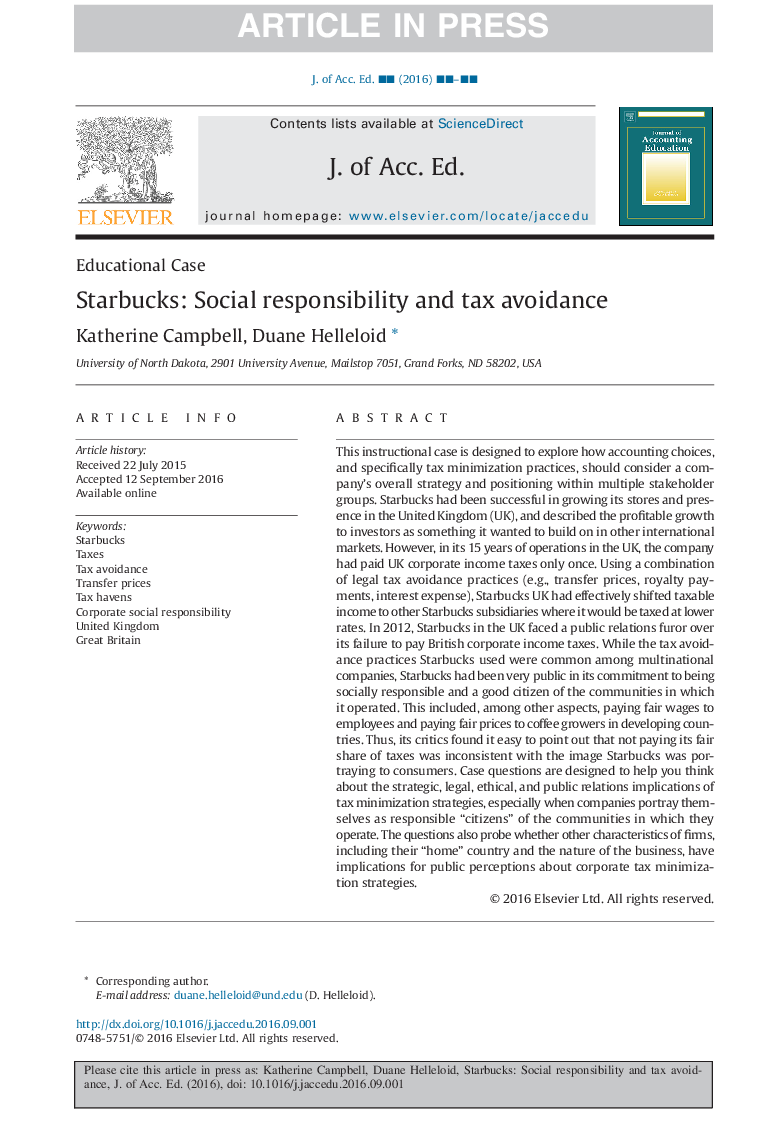| Article ID | Journal | Published Year | Pages | File Type |
|---|---|---|---|---|
| 4939053 | Journal of Accounting Education | 2016 | 23 Pages |
Abstract
This instructional case is designed to explore how accounting choices, and specifically tax minimization practices, should consider a company's overall strategy and positioning within multiple stakeholder groups. Starbucks had been successful in growing its stores and presence in the United Kingdom (UK), and described the profitable growth to investors as something it wanted to build on in other international markets. However, in its 15 years of operations in the UK, the company had paid UK corporate income taxes only once. Using a combination of legal tax avoidance practices (e.g., transfer prices, royalty payments, interest expense), Starbucks UK had effectively shifted taxable income to other Starbucks subsidiaries where it would be taxed at lower rates. In 2012, Starbucks in the UK faced a public relations furor over its failure to pay British corporate income taxes. While the tax avoidance practices Starbucks used were common among multinational companies, Starbucks had been very public in its commitment to being socially responsible and a good citizen of the communities in which it operated. This included, among other aspects, paying fair wages to employees and paying fair prices to coffee growers in developing countries. Thus, its critics found it easy to point out that not paying its fair share of taxes was inconsistent with the image Starbucks was portraying to consumers. Case questions are designed to help you think about the strategic, legal, ethical, and public relations implications of tax minimization strategies, especially when companies portray themselves as responsible “citizens” of the communities in which they operate. The questions also probe whether other characteristics of firms, including their “home” country and the nature of the business, have implications for public perceptions about corporate tax minimization strategies.
Keywords
Related Topics
Social Sciences and Humanities
Business, Management and Accounting
Accounting
Authors
Katherine Campbell, Duane Helleloid,
